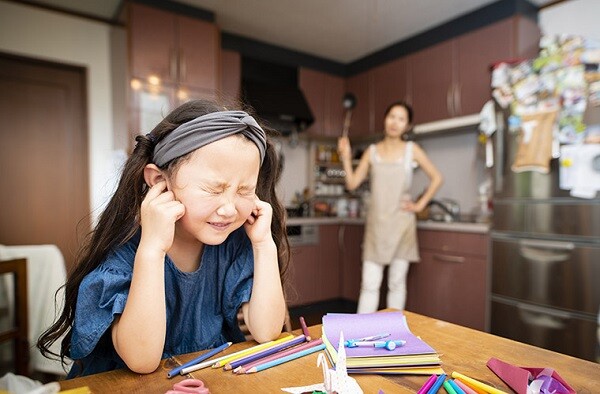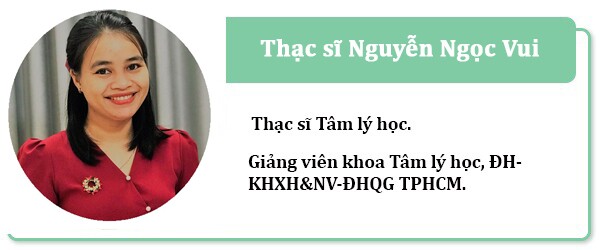The impact of parents’ words and actions on their children’s development cannot be overstated. From birth to adulthood, children look to their parents as the primary source of love, care, guidance, and role modeling. Every word and action from parents plants a “seed” in their children’s impressionable minds, profoundly shaping their personality, values, and behavior in the future.

Illustration.
Sincere praise and encouragement from parents can make children feel loved and motivated to grow. On the other hand, harsh criticism and unfair comparisons can be hurtful, causing children to lose confidence in themselves.
When parents say, “I wish I hadn’t given birth to you,” it can make children feel like a “burden” or a “mistake.” Such statements can have profound psychological impacts on their development.
In these situations, children may lose the close and trusting relationships with their parents. To help children heal from this hurt and develop a positive self-image, and to guide parents in expressing their love healthily, psychologist Nguyen Ngoc Vui offers valuable advice.


What specific reasons might parents have for saying such hurtful things? Are they facing any difficulties or pressures in parenting?
There can be various reasons for parents to utter these words. It could be that parents say them out of anger or frustration when their children don’t meet their expectations or disobey them.
Another reason could be that the parents’ decision to have children was not well-thought-out, and they now feel unfulfilled or regretful about having children. A third reason could be that the parents unintentionally lash out due to their own emotional issues, repeating patterns from their childhood, or behaviors learned from their community.
In the first two cases, parents are likely frustrated with their children’s behavior. However, in the third case, if such statements are made without any intention and are seen as a natural way to react, the answer is “no.”

What are the potential impacts and consequences of such statements on children’s psychological and emotional development? Are they at risk for future psychological or behavioral issues?
There are often multiple consequences related to children’s emotions, cognitive development, and sense of self-worth. When parents say, “I wish I hadn’t given birth to you,” it implies deep regret about having their child. In other words, it conveys that the child is not worthy of existing.
This statement is like a “poison” that erodes the child’s sense of self-worth. It puts them at risk for psychological issues, not just in the future but also in the present, regardless of their age.
One of the signs of depression is a loss of self-confidence, which can lead to health and mental problems.

How can a psychologist help children cope, heal, and rebuild their relationship with their parents when they feel abandoned by them?
Different schools of psychology offer varied approaches to helping children cope and heal. The intervention depends on the child’s personality, circumstances (whether they live with their parents or not), age, and how they perceive their self-worth.
One well-known approach is CPT, where the psychologist helps children identify and challenge negative thoughts rooted in their initial beliefs. For example, if a child believes, “I don’t deserve to be born or loved,” the psychologist will help them recognize the fallacy in this belief and gradually shift their thoughts, emotions, and behaviors toward a more positive direction.

How can parents rebuild their relationship with their children and establish trust and closeness? What changes and improvements in their thinking and behavior are necessary?
It’s essential to recognize that hurtful words, once spoken, are like “spilt water,” challenging to take back, especially when parents express deep regrets about having their children. In such cases, the parents’ thoughts and beliefs about themselves and their relationship with their children may already be distorted.
Consequently, changing and improving their thinking and behavior can be difficult. Typically, children growing up in these circumstances are more likely to face health and mental challenges.
Experts recommend family therapy involving both parents and children. However, if parents cannot recognize their issues, the priority should be on healing the children’s psychological wounds.






































